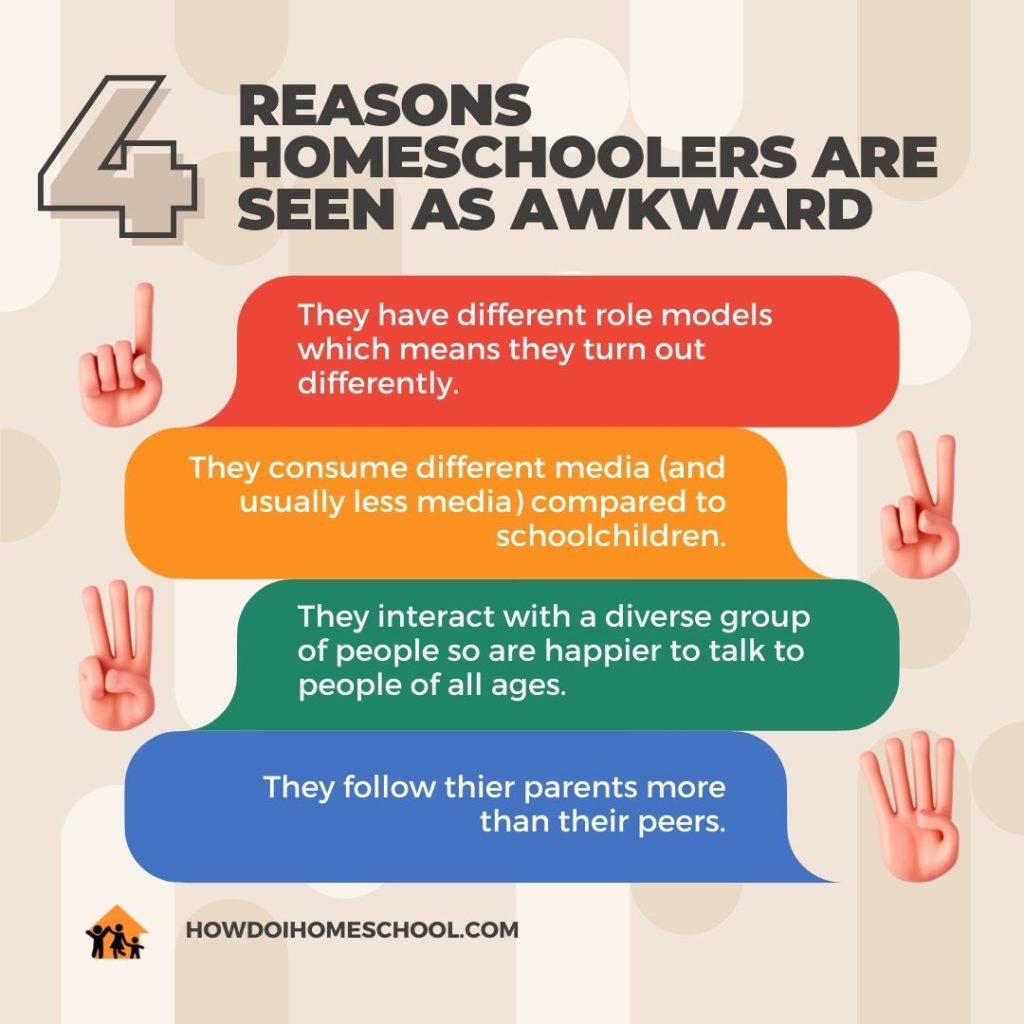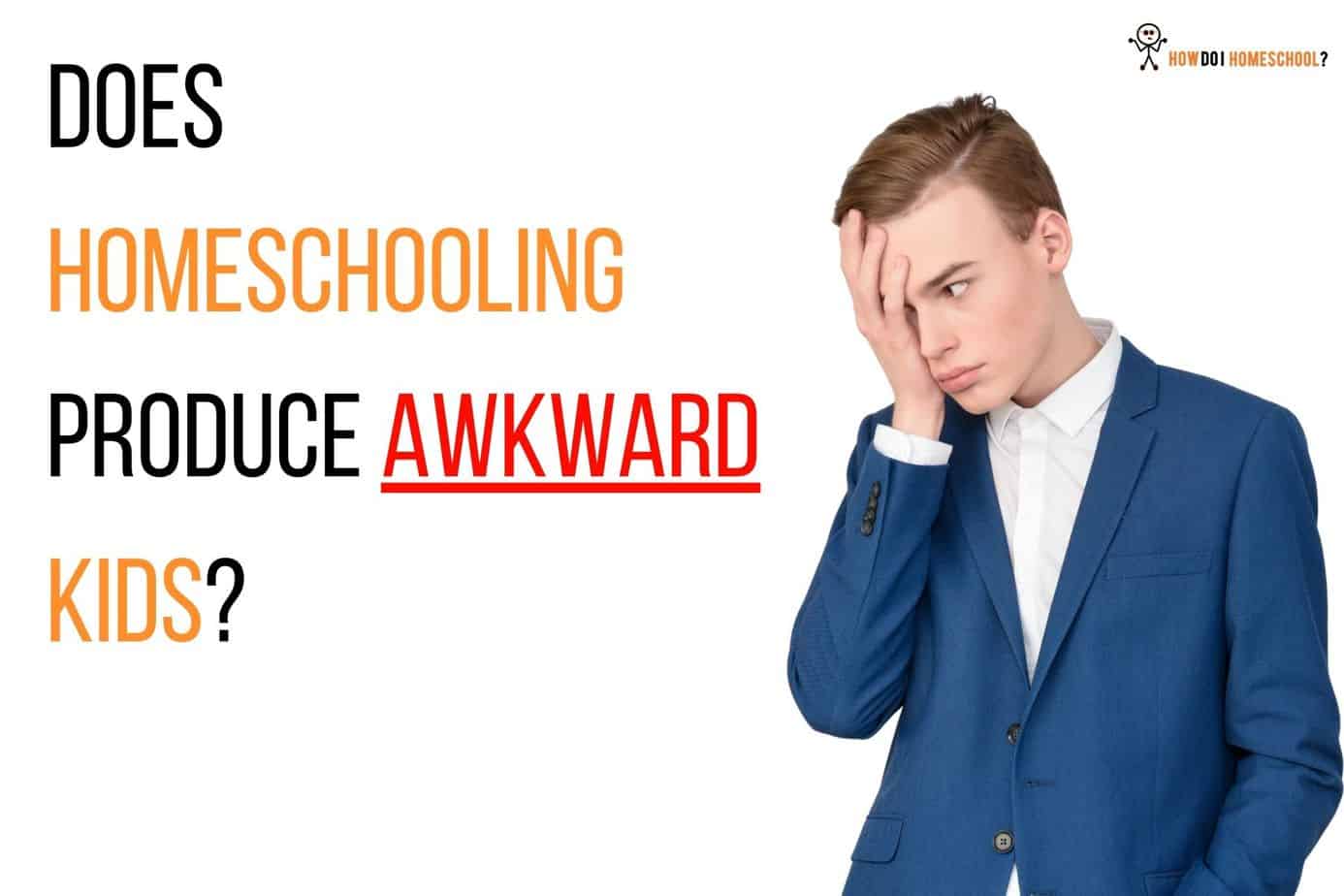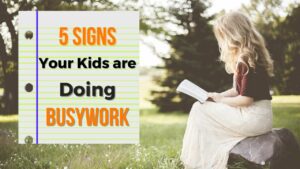Homeschooling is an alternative to traditional schooling and is growing in popularity. There are many reasons why parents may choose to homeschool their children. Still, one of the most common reasons is to avoid the socialization difficulties often associated with traditional schooling. Yet, many homeschoolers feel awkward around other people, and many other people feel homeschoolers themselves are socially awkward.

I hope you enjoy reading this blog post. If you want to do my course on how to homeschool, click here.
In this post, I’ll argue that this awkwardness can be attributed to several factors. Keep reading!

Are Homeschoolers Socially Awkward?
Are homeschoolers socially awkward, or is this a perception fueled by society in a bubble? Most parents send their children to school, creating a society with its own culture.
To a certain extent, homeschoolers are very awkward. They typically do things differently to schoolchildren, and the appearance is stark. Many can self-motivate themselves to do bookwork.
For example, homeschoolers love their parents and siblings a lot and would even be happy to see a movie with them. They like talking to young or older adults as much as people their own age. They think outside the box. Many are uncommonly pleasant and intelligent regarding current affairs and ethical issues.
In short, homeschool socialization is entirely different from school socialization and sometimes refreshingly agreeable!
Why Are Homeschoolers Socially Awkward?
Assuming homeschoolers are socially awkward, the question remains, ‘Why?’
After observing many homeschooling parents, I believe this is for several reasons. I will outline some of these below.
Reason 1: Different Role Models
A schoolchild’s most vital role models are peers, teachers, and parents. All these role models influence a child’s character. Therefore, children often turn out well if a role model is good. If not, they can turn out badly.
A teacher can be a good role model or a bad one. It depends on the teacher to which a student is allocated.
Peers are similar; however, peers don’t have to abide by a set of ethics and often exhibit undesirable behaviors. Furthermore, peers often expect that children will conform to their way of doing things if they want to fit into the group. This can work well if it’s positive peer pressure, but it can be a disaster if it is negative peer pressure.
In contrast, a homeschooler’s primary influence is their parents. Although a parent can be a bad influence, generally, parents have their children’s best interests at heart and go above and beyond the duty to which a teacher commits.
This means homeschoolers have dedicated educators who love them more than paid school teachers. (Indeed, as impressive as many teachers are, they will rarely match the love parents can give their children.)
Reason 2: They Consume Different Media
Role models are present in several places, and one prominent place we see them is through the media. While not everything on television or online is terrible, a lot of it is trash.
Children left to themselves tend to gorge themselves on entertaining popular culture, often absorbing unhelpful ideas (i.e., body image ideals, meaningless narratives, and pure gossip) along the way.
Children that are lovingly steered towards more wholesome pursuits (including positive media choices) are happier and more fulfilled as they find meaning in more directed pursuits.
Homeschoolers often make up this second group and therefore tend to avoid lousy role models more frequently.
Because they consume different media and usually less media in general (screen-free homeschooling is becoming popular), homeschoolers are socially awkward because they often don’t know what is happening in popular culture.
But is that a bad thing?
Reason 3: They’re Exposed to a Wider Variety of People
Schoolchildren are encouraged to spend most of their school time with peers of the same age. Because schools are usually on a physical campus, most students come from a catchment directly around their school.
This means there isn’t always a wide variety of ethnicities or social groups. If you come from an affluent area with predominately white people, you’ll tend to go to school with rich, white people.
If you come from a poor place with many migrant refugees, you’ll tend to go to school with poor migrant refugees.
If you homeschool, you can go to art classes in the community with people of different ages and backgrounds. If you go to a homeschooling group, you’ll tend to find many families with babies or older teenagers. You can play community sports with a different set of people.
A homeschooler has more of an opportunity to speak to people of all ages and often all ethnicities.
Reason 4: They Follow Their Parents More
Homeschoolers tend to follow their parents’ ideas and behaviors more than schoolchildren. This means they often spend more time listening to their parent’s wisdom and less time listening to their peers.
The Gen2 study (pg. 13) reveals homeschoolers have similar beliefs to their parents. It also indicates schoolchildren don’t show similar views to parents to the same extent as homeschoolers. If your homeschooled, the apple falls very close to the tree.
 Reason 5: Many Are Christians
Reason 5: Many Are Christians
Although homeschooling is increasingly attracting new-age people, anti-establishmentarian types, and parents with special needs children, it attracts a lot of Christians.
This is because many of these parents realize school isn’t having as positive an influence on their children as they had hoped. They see their children’s attitudes changing for the worse. They might also have observed bullying or other negative aspects of school culture.
So, Christian parents choose to homeschool.
As home educators have a stronger influence on their children than school, many of these children grow up with Christian beliefs and Christian characters.
The heart of a Christian’s nature should be love – a reflection of the love that Jesus showed to us on the cross. Hence, many homeschoolers look different because they have the best example of all, Christ Jesus.
Want to Learn How to Homeschool?
There are two great ways t learn more about homeschooling: one is free, and one is a $67 fundamentals course.
The $67 Course
Looking to take your homeschooling to the next level? Join Rebecca Devitt’s online Homeschool Parenting Program and learn the strategies and techniques needed to make homeschooling a success! Learn more about the HPP here and signup here.
The Free Youtube Channel
Also, make sure you join the How to Homeschool Youtube channel, which will give you a fun and exciting look into the homeschool world and help homeschool your children. Check out the channel here, and don’t forget to SUBSCRIBE.
If you’re not sure where to start, start with the following playlists:
- Starting homeschool playlist
- Homeschool Methods playlist
- Homeschool Curriculum playlist
- FAQs on Homeschooling playlist
You’ll love it and find it helpful and entertaining! Discover the channel here.
Conclusion: Why Are Homeschoolers Socially Awkward?
Almost everyone knows the story of the ugly duckling. The duckling hatches. It’s ugly and grey and appears more unattractive than the cute, yellow chicks. The duckling is teased but eventually grows up to be a beautiful swan. One lesson from the story is that looks can be deceiving. Similarly, we can assume that something awkward is bad or ugly. But, is it a beautiful thing we might grow to appreciate more as we look into it further and get to know it better? What do you think?




Love this! Needed this encouragement as I think about homeschooling my daughter (4). Gonna check out your website more. ????????????
Oh, that’s really encouraging. Thank you, Rebecca!
This is refreshing. I know all this to be true and I’m glad you put it out there for people to find!! I have enjoyed great benefits in my children the past 3 years of homeschooling. Thanks
That’s so lovely to hear. I’m glad you found it so encouraging!